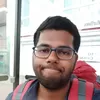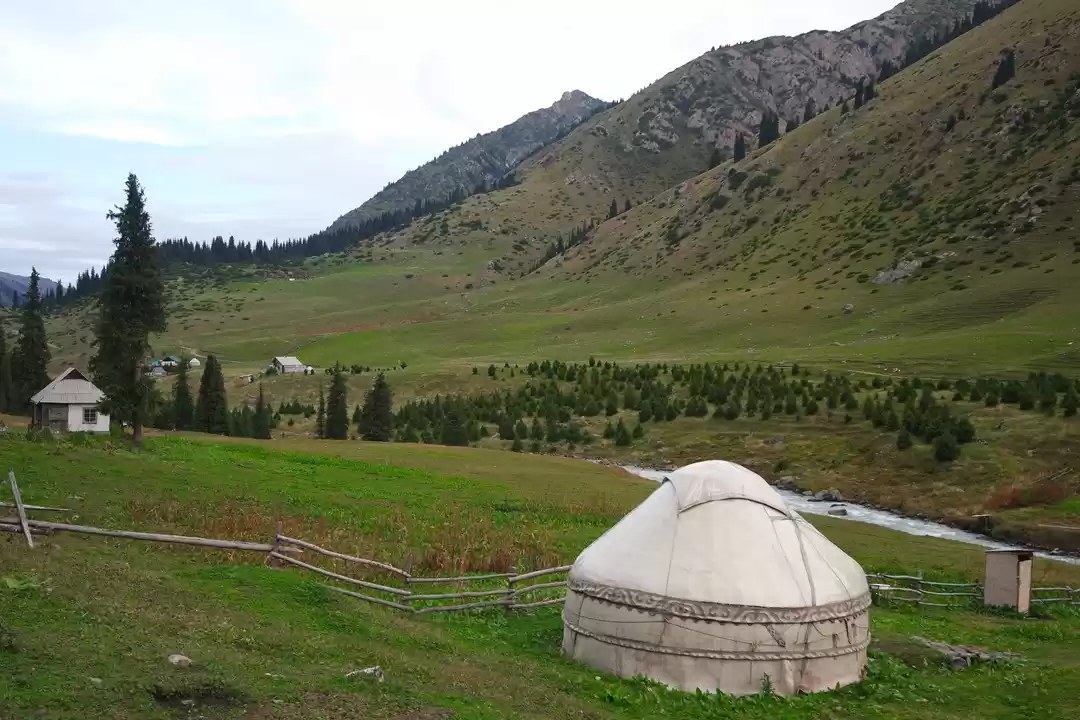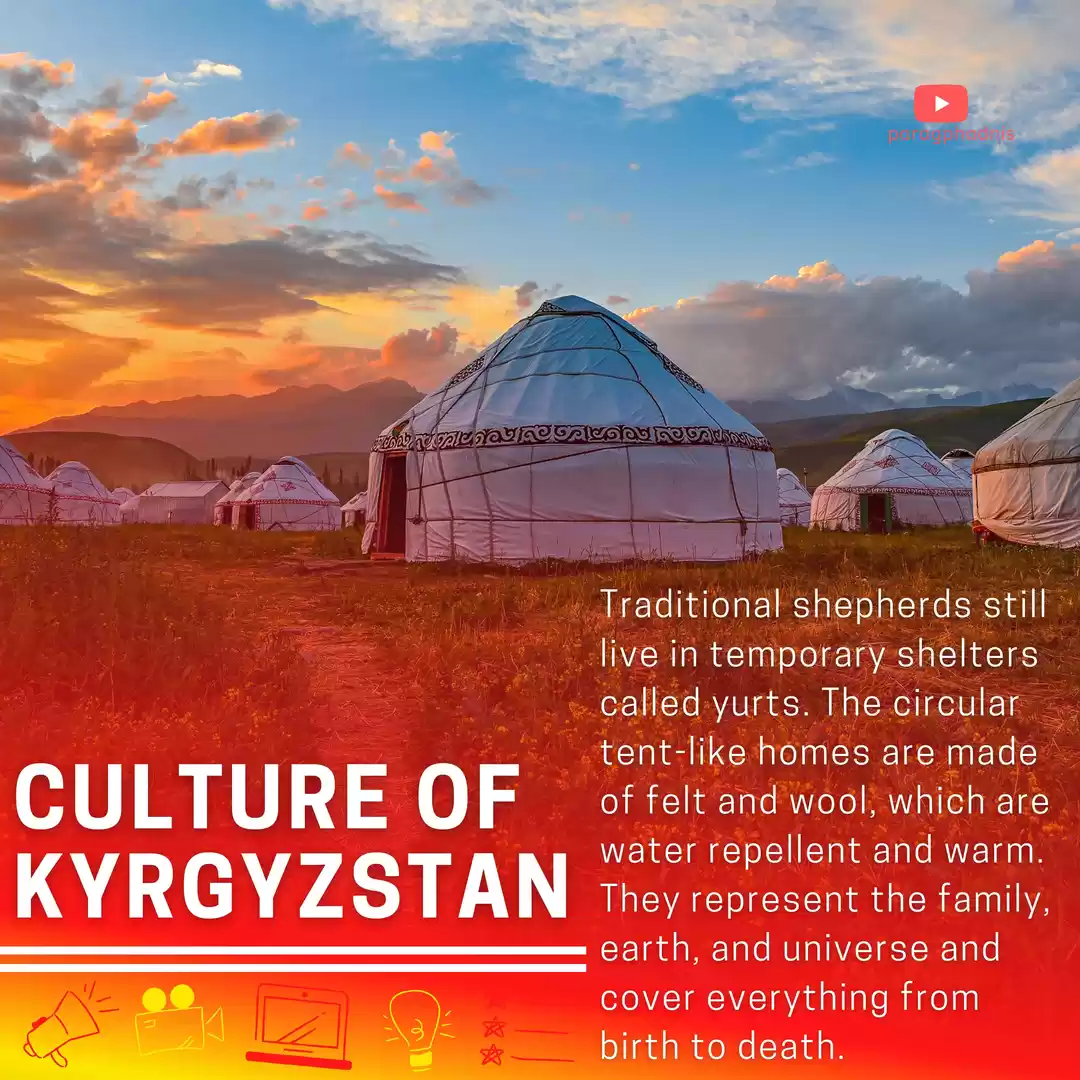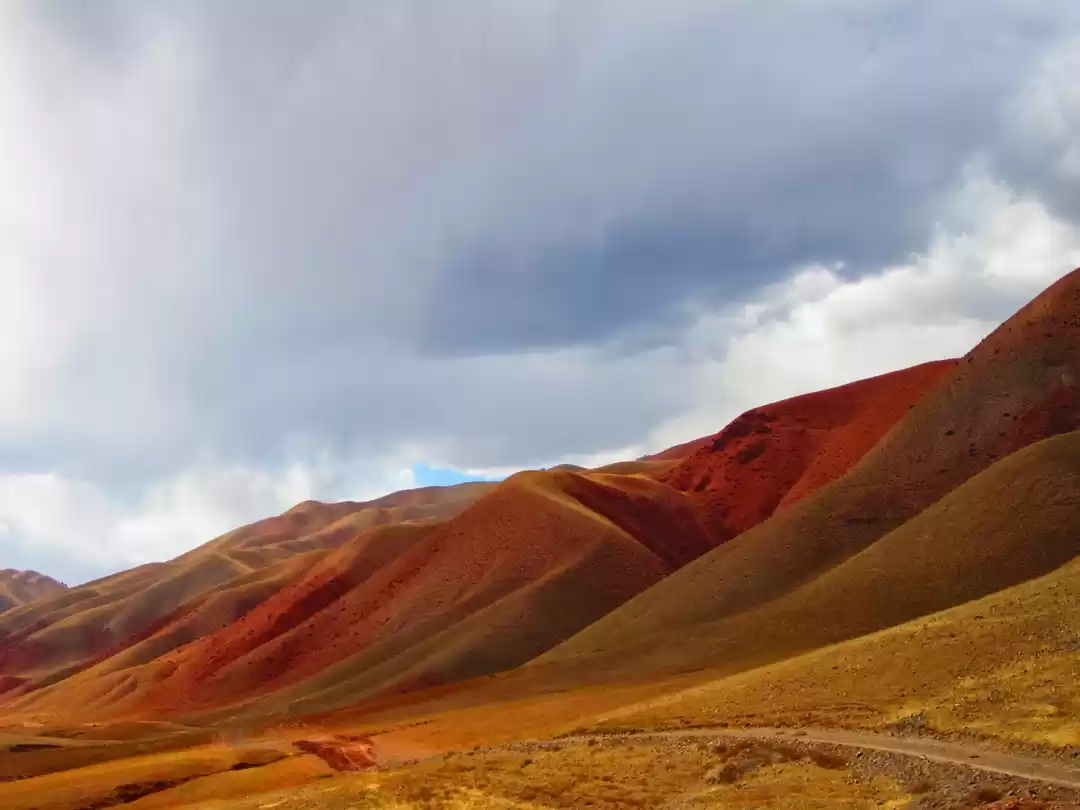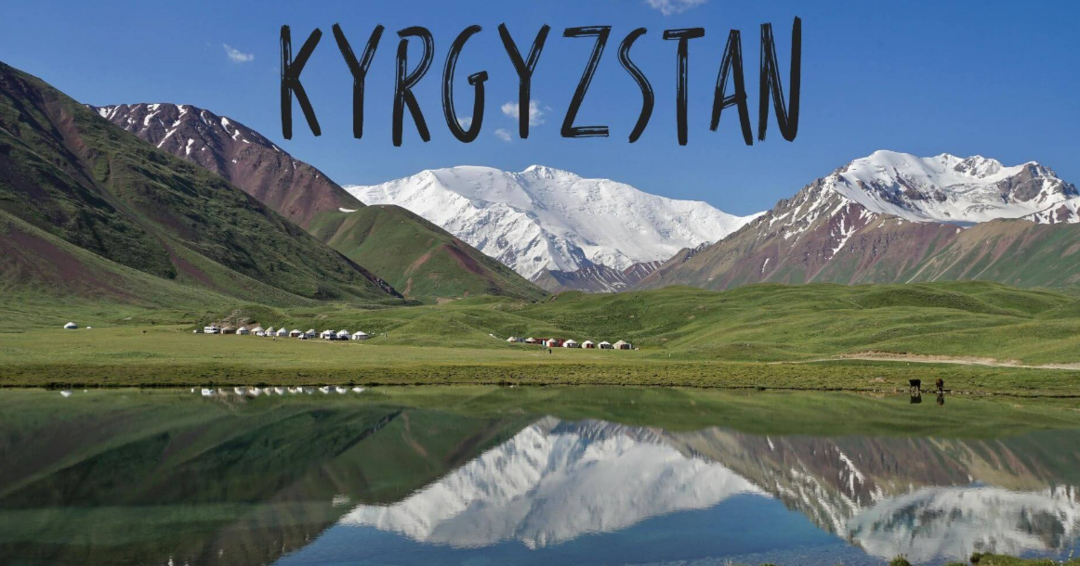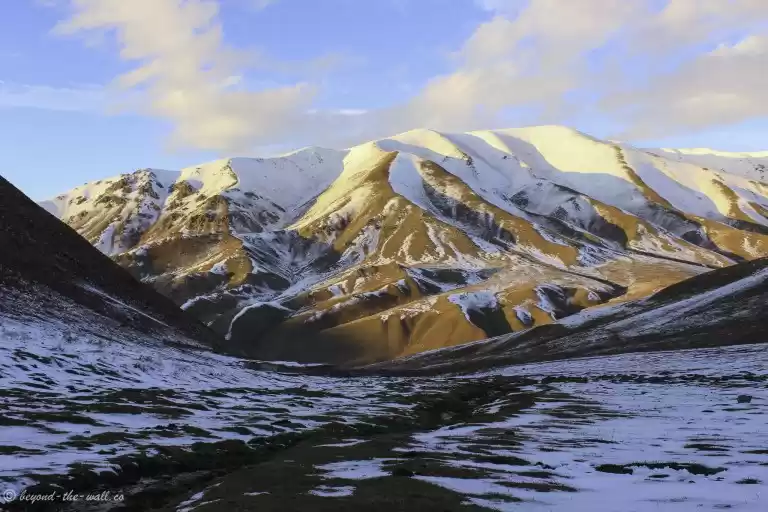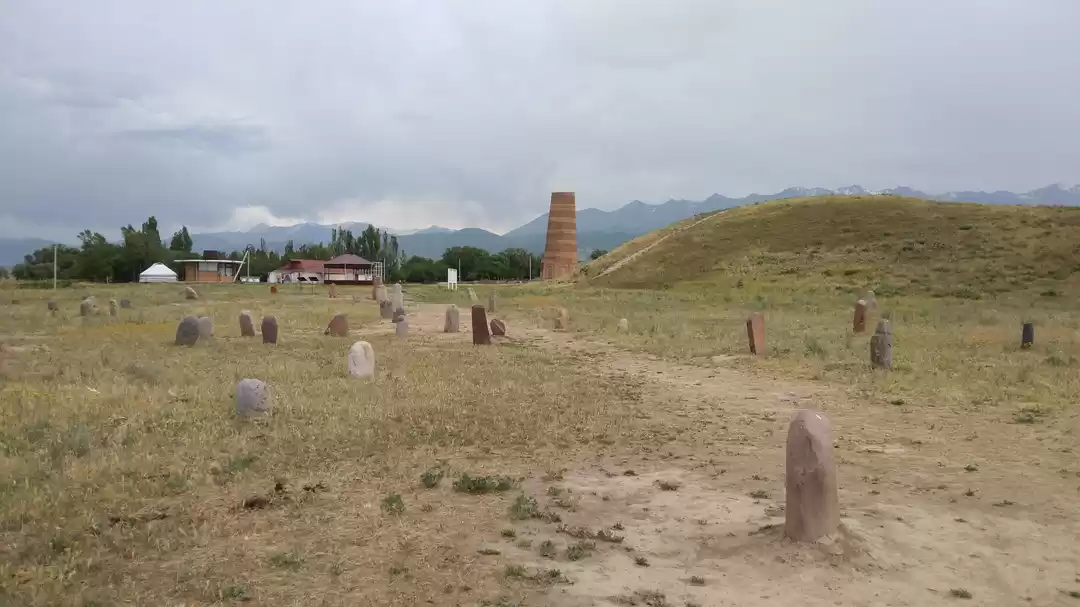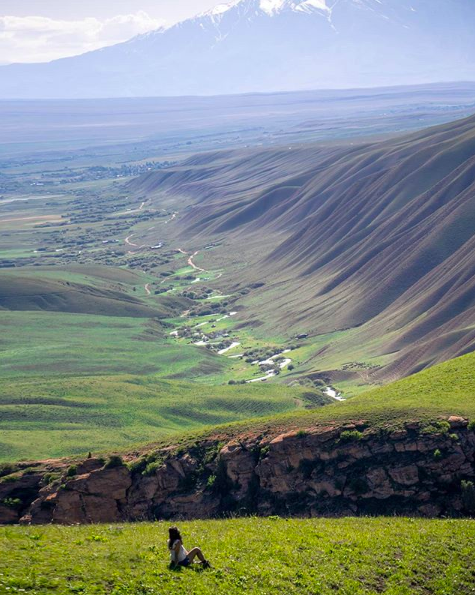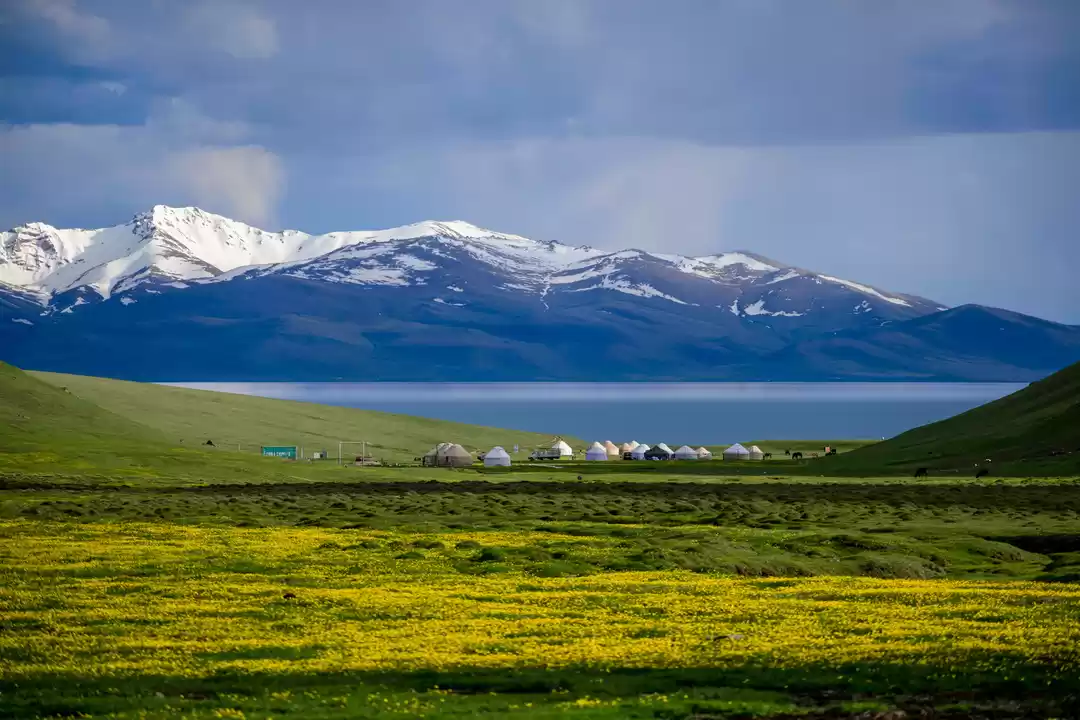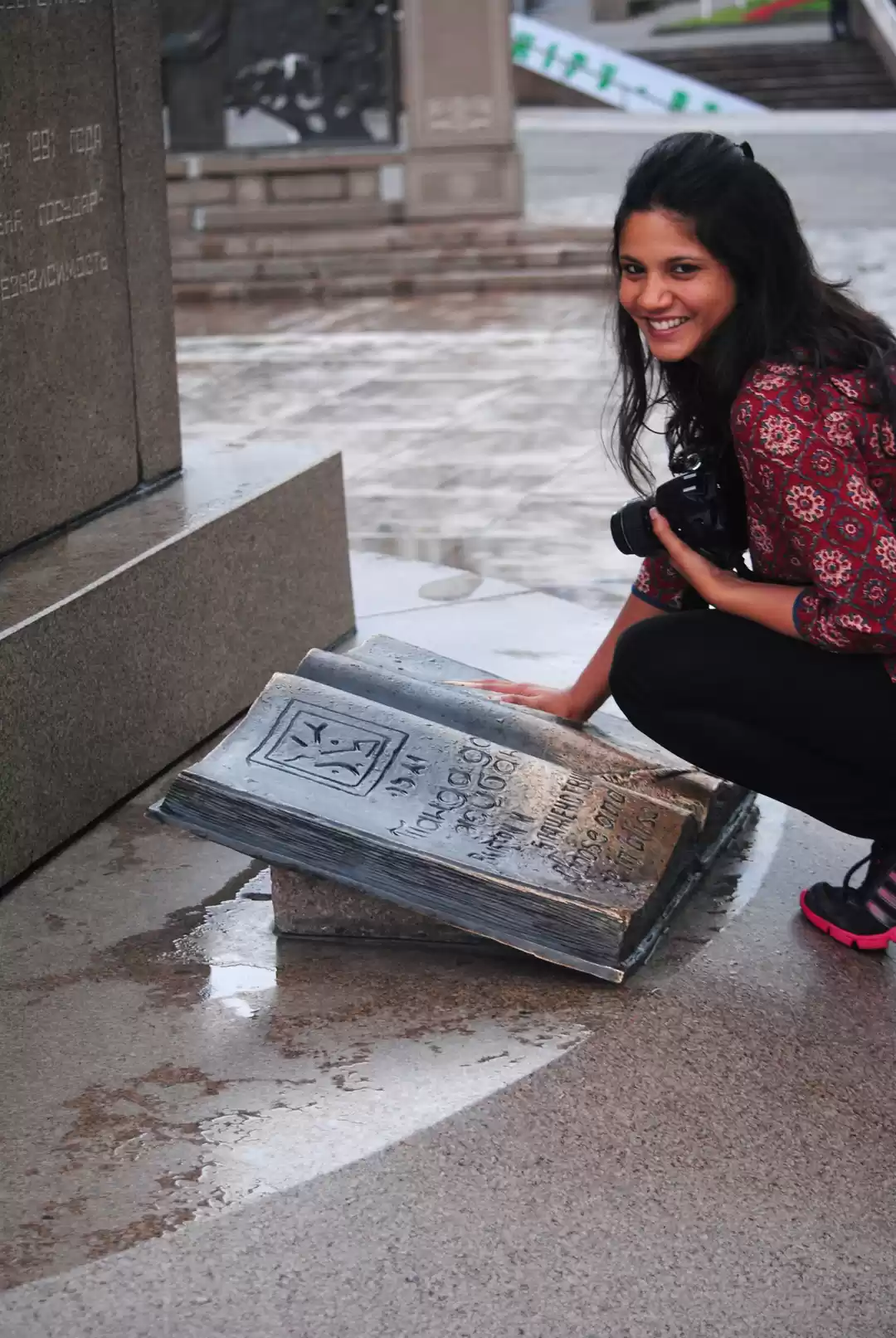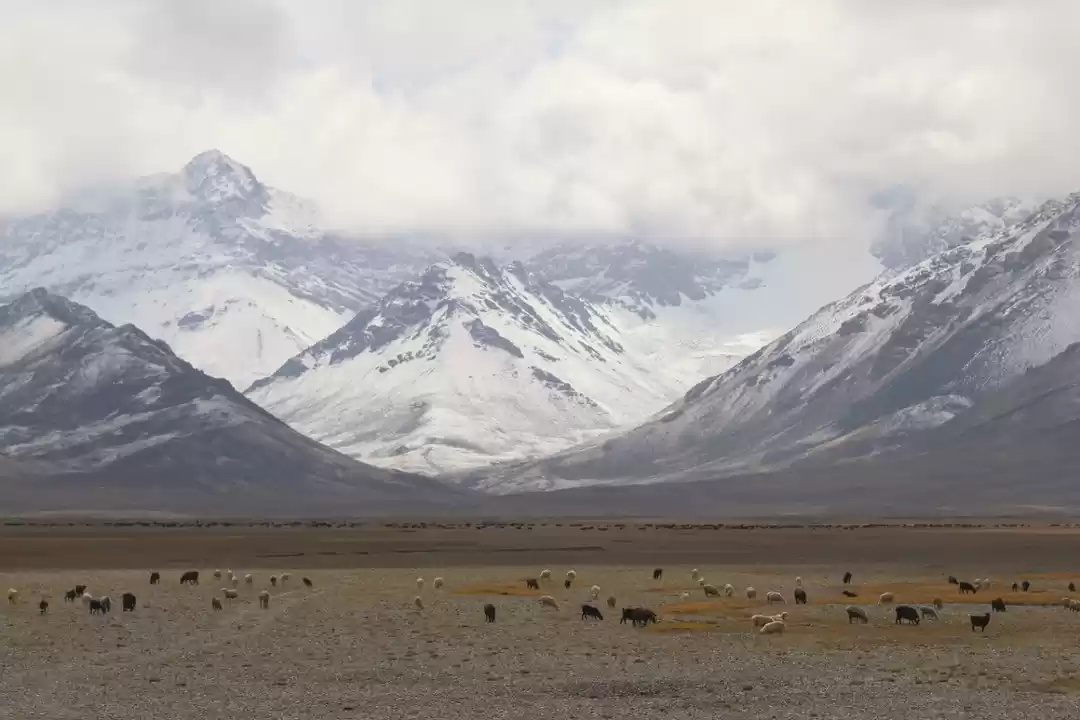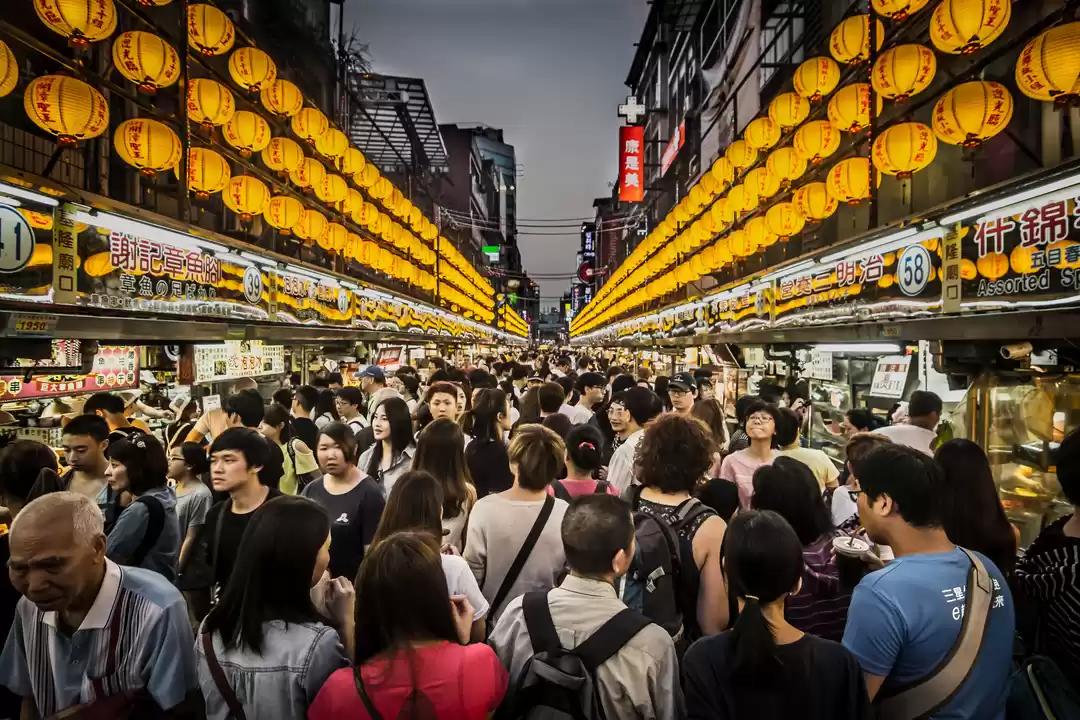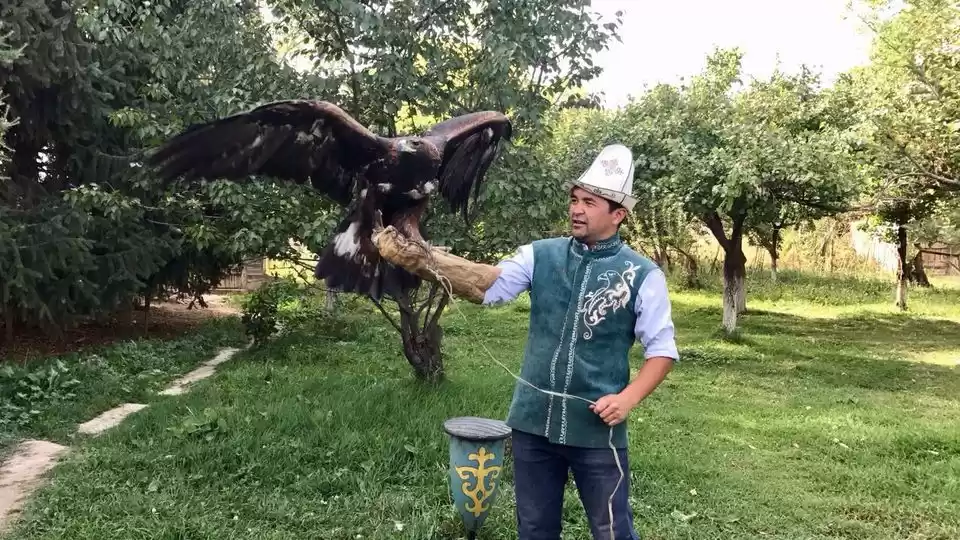
I did not consider myself an ace of geography but I used to have a good idea of countries and their capitals. While a map of Africa may leave me off-side, Asia does not. Asia was my forte. The continent where I live and travel for almost thirty years. But no, everything changed when we arrived in Kyrgyzstan.
When my partner proposed to me to travel through Central Asia and to visit all the Soviet nations, I nodded without hesitation. Then, over time, when I started to zoom in Google Maps I discovered (and the right word is to discover) a set of countries that I didn't even have the remote idea of. Kyrgyzstan was one of them.
Even Bishkek, its capital, did not sound great to me at all. Even its geography, drawn by free hand and in a capricious and Soviet way, did not sound like anything to me. Kyrgyzstan arrives like this without an idea.
We travel to the border of Kyrgyzstan. It took us seven hours by truck to make the two hundred kilometers separating Bishkek from Almaty, south of Kazakhstan. We travel in a big truck, with more than twenty wheels and ten meters long. A truck like those costs to climb, especially with backpacks and with the right time and space that can be found on a Central Asian shoulder.
The truck move slowly, with a shy driver who spoke no English. The driver saw hunger in our face and so he gave us half a salami, a bread and two water bottles when we said goodbye. He left us ten kilometers from the border. The crossing for trucks is one and that of individuals, another.
We walk and at twenty minutes we were explaining to the border officer our strange situation. He did not understand, and asked us for a visa and passport. He made a call to someone and finally he sealed us. We were in Kyrgyzstan and I, at least, had no idea about anything.
Tired, sweaty and with all the dust that we accumulate in the cabin of the truck we got on a marshrutka to travel the last kilometers. The marshrutka are private vehicles that are used as public transport, with an official route, of course. For thirty Som we made the last twenty kilometers to the center of Bishkek.
In the front seat sat a boy barely twenty years old, with short hair and is very neat. He looks half Russian, and half Kyrgyz. Even so, it is the result of the mixture, the invasions and the Soviet occupation in the land of the nomads of the center of Asia. I'm one hundred percent Kyrgyz, he clarifies, but my grandparents are Russians.
He asked us our age. We were born when the Soviet Union was still standing, before Kyrgyzstan became independent. He asked us curiously about Mongolia. He, like so many other Kyrgyz, ask with astonishment for Mongolia. They are children of those distant steppes where Genghis Khan once ruled. But Mongolia only remains in the words, and he ask us about Russia. His second great reference, both politically and economically.
He said he loves Kyrgyzstan but that it is dangerous and that Russia gives him more guarantee. After discovering that he is not the only one, most of the young people of northern Kyrgyzstan dream of Russia. As in Kazakhstan, many, even, do not speak their national language but only Russian and English.
He asked us where we are going and offered to guide us to our hostel. Not without first doing a small city-tour around the city. He showed us the same elements that are repeated in each of these former Soviet capitals. There are monument to the heroes of world war II, statue of the unknown soldier, and images representing freedom.
There is the infallible statue of Lenin with the right hand raised, the government house, a Soviet park, a bazaar and some great avenues. They are named after communists like Lenin, October, Marx or Engels. The order of the factors can be altered, but the elements are the same. After all, these cities were made by the Soviets and they are responsible for the planning. They create the parks, schools and hospitals that are still functioning today.
While we were crossing the center of the city, we saw the government house and a monument. The monument is in the exact place where the snipers fired during the revolution. We tried to look for the bullets but we did not see one. We kept walking.
In a moment we stop to rest. With the backpacks, it was not easy for us to follow the rhythm. The guide offered to go buy us something fresh to drink. We mistakenly accepted and he brought us two glasses of Kumus, the fermented mare's milk.
We said goodbye without knowing if we would see each other again. Our idea was to leave Bishkek as soon as possible. In a country that has an eighty percent of mountainous surface, the charm is in the nature and not in the cities. But we could not. The visas, the embassies, the bureaucracy and the comfort of the city made us spend more in the capital of Kyrgyzstan.
Finally, we left Bishkek. Comfort is never a good friend of the traveler. It invites to be quiet, to put together a routine, to stay inside. And in Bishkek, we were too comfortable. We already knew where to buy cheap fruit and where they sold the best kebab. We had to start in our best Kerouac style.
Looking at the map, east of Kyrgyzstan we see a large lake. Issyk-kul is the second largest mountain lake. It was enough to go a few kilometers away from the city so that the landscape begins to change. The gray department blocks gave rise to huge openings crowned by the background by high and snowy mountains. The horizon only broke every few kilometers. The black spots were improvised places of honey, smoked fish and the tastiest melons and watermelons that we ever tried.
It is assumed that Issyk-Kul, the lake that never freezes, was a key point in the ancient Silk Road, but nothing remains of those times. The northern route of the lake is terrain of resorts and hotels of several stars. Also from families who rent the free rooms of their houses for tourists to stay.
Cholpon Ata is a land of tourists mostly Kyrgyz, Russians and Kazakhs. Tourists who come with money and willing to give their best in their two weeks of vacation. The best thing about it is getting drunk, eating until you burst, buying badly printed shirts and renting little boats to tour the lake.
The most remarkable thing is it is not cold. With fifteen degrees and torrential rain they swim without problems. We take shelter in the camper and we watched them from the shore. We decided to go around the lake, and return by the southern route. Not without stopping at Karakol, the most important city in the area.
For them Karakol is to Issyk Kul, what Paris is to France. Nor were we going to contradict them, but we only mentioned in passing that the city of Karakol is not even on the lake, but a few miles further inland. Karakol reminded me of distant Siberia. Wooden houses, dirt streets and kids playing throwing stones or running to the chickens. The idea was to go around the city, get into the mountains, camp under the stars and spend somewhere surrounded by nature.
Day 2 - Karakol

The morning dawned just cloudy and we decided to go for a walk. At least, to the mountains that looked at the back of the town. Along the way, in addition to greeting all the neighbors we were stopped by two guys. Each one with his sickle and his work romper. They told us not to go up, as there was a lot of mud. They offered us their horse, and it was going to be the best way to go up. We tried to continue on our own, but we came back. When we returned we were asked for cigarettes.
We decided to go to see a few curious rock formations only fifteen kilometers from Karakol. The guy who works in the hostel insisted that we go by taxi, but we told him that we prefer to go by public transport. He said it is impossible, and that we will not be able to get there without a a taxi. We told him that we are going to try to go by public transport. With a long sigh we said goodbye.
At the marshrutka stop nobody could tell us which one is going. A lady lent herself to help us. She did not speak English. She asked us if we speak German. Making a mix between Russian, English and German we understood each other. She took us up with her to a marshrutka and after getting off with us a few blocks away, she told us which one is going.
With rain we walk by Jeti Oguz. The only good thing is that the gray sky further enhances the reddish color of the mountains. We did not get to lift our thumbs that a van already stopped to pick us up. There was a family who live in Cholpon Ata. They are on vacation so they have no problem taking us and practicing English. We stopped at a cafe.
We ordered skewers of meat, shami kebab, samsa, manti, cucumber salad, tea and bread. The family did not eat as it was Ramadan. We said goodbye, one more time. We have a few days left in Kyrgyzstan and we have to move forward. We decided to go south to the city of Osh, the second most important city in the country. The region that the Soviets divided by eyeview is a strange spiral between the recent nations of Uzbekistan, Tajikistan and Kyrgyzstan.
Up to Osh are just over six hundred kilometers with several mountain passes over 3,000 meters above sea level. We decided to do it in two sections, without knowing very well where to sleep. The slogan is, always, to advance as much as we can. And now I settle into the chair, so what comes next was what I enjoyed most of these days traveling through Kyrgyzstan.
According to our way of traveling, we are condemned to make our trip entirely dependent on others. It depends on the car that stops and picks us up on the road, and the truck drivers. We depend on the good predisposition of the people who help us when we are lost and without maps. We depend on those who open the doors of their houses and of the hotels that, sometimes, receive us. Of course we are architects of our destiny, but let me assure you that most things do not depend on us.
The trip to Osh was not going to be the exception. The first car was a young man who works on importing Russian vodka. He took us to a roundabout. From there, a taxi driver took us for free to a toll booth. On the way he was stopped by a drunk woman. With our little Russian we understood that she told him that she had no money. He also picked her up. The woman said something else and the guy brought us down. We had serious doubts about how she was going to pay for the trip. We had a little fruit, bread and cheese under a tree. We hope the midday heat passes and we return to the shoulder. He braked a truck. They go to Talas, the city of which Manas is a native, the national hero who liberated Kyrgyzstan. We got off earlier.
We decided to spend the night in Suusamyr, a small town that is tucked about thirteen kilometers from the main route. It does not appear in travel guides and travelers do not stop there. That is all we want to hear. We wait for the last car. A lady, too, waited with us but few cars take the detour to Suusamyr.
He doubled one but only had room for one person. We said goodbye to the lady and she got on. After a while, a truck stopped. He stopped without us signing and walking slowly, leaving us in the center of Suusamyr. In the intersection of two dirt roads, there is a tiny mosque, a warehouse and a restaurant that only offers a single dish.
We have laghman, a noodles with vegetables and bits of lamb meat. From the restaurant the only movement we saw was that of the shepherds who brought and brought the cows from the mountains and the ladies who chatted in the street. Sometimes life seems very simple. Suspiciously, simple.
The boy from the store that sells clothes took us to the guest house. We recognized it very easily, as it has the only sign in English of a whole town of twenty houses and two streets.
A lady without much sympathy led us through. Without even saying hello she told us a number in English. We did not know what it was about, perhaps it was the price for sleeping there. That's why I do not like in tourist places. People are clouded and money eats up the most human signs. We told her it's a lot of money and leave.
With the night almost over we entered the second warehouse in the town and asked for a place to put the tent. While we have hundreds of kilometers of empty land, we always believe it is better to ask. The girl in the store told us to wait. She called her daughter, locked the place with a key and signaled us to follow her.
We crossed the street. She was wearing a headscarf, with a teeth covered in gold, worn dress and rain boots. She made us the universal gesture of sleeping by joining both hands under one ear and putting her head on her side and told us to follow her. The following scene could have been scene of a film.
We followed her down a totally dark corridor, open a gate and enter an empty and dirty room. Another hallway, a locked door, an empty kitchen, another locked door, a room with lots of pictures, another door with a key and a new hallway. We open a curtain and with some light we head to a room.
The room was spacious, with carpet floor and six beds. The sheets are with Mickey art. The walls have posters of Winnie the Pooh and in a trunk a pile of blocks that were waiting to be stacked. The lady told us to put several mattresses on the floor and to sleep there. We never knew if it was a kindergarten, an orphanage, if it was the municipality of the town or what. But we spent the night there.
Day 3 - Fergana Valley
In the morning we did not see the lady. The store was closed and there was no baby playing on the street. The only thing we saw was a group of Kyrgyz gentlemen (it is easy to recognize them by their white felt hats) drunk chatting in a corner.
We walked the thirteen kilometers to the main route and started again. We did not pass five kilometers and we were already shaking heads to the sound of Salam Alaikum. The guy, a pot-bellied forty-year-old petite, was going to Jalal-Abad about 100 kilometers from Osh. He had no problems taking us.
We made almost five hundred kilometers together stopping for lunch, taking photos, looking for an emergency bath and taking the blessed fermented horse milk. When we were arriving in Jalal-Abad the good man offered to go fifty kilometers more to leave us in Uzgun. It is a city with a huge minaret that according to him we could not see. And after taking pictures and saying goodbye, we asked again about a place to put the tent.
We ask a girl in the park and they said no. She tells us that we better walk to the mountains at the end of town. We decided to ask in another store and this time, the owner invited us to sleep in an empty room behind the store. He apologized for not having too much furniture and invited us to a tea. He told us that in that city seventy percent of the population is Uzbek. We had no doubts that we were in the heart of the Fergana Valley.
We went for a walk around the city and the bazaar made us feel that we had crossed an almost invisible border. Nothing had to see this part of the map with the rest of the country. We returned to the store. The lady shared some ice cream and we spent a good time chatting on the sidewalk with her and with all the neighbors who had learned that in the town there were two tourists who were going to spend the night in the warehouse .
Already nearing 9 the lady began to close. She counted the collection in the box in front of us and asked us what time we wanted her to come and open the store the next morning. She said goodbye and left us alone, with all the merchandise all in an act of confidence.
There are things that I find hard to explain or understand. And this is one of those. For me it is inexplicable that someone picks us up on the road, invites us to house, and shares tea with us. I do not understand hospitality and I do not understand why I cannot understand it when it should be something obvious and natural. Here this is normal, and life seems simple again.
And although it seems illogical to us we like to travel like this. We do not like tourists things nor do we like the routes already laid out where everything is easy and where everyone speaks English and everything can be paid in dollars. We like the broth, get full, know the real life and the edges already prepared for tourism.
Kyrgyzstan was a great salad (maybe Russian salad) of nomads, communists, revolutionaries, reds and pro-Yankees. The valley of Fergana divided with a crayon has ethnic groups that still do not know which side of the border they live. We arrived without having much idea and we left with the same feeling.
The language barriers did not help, traveling along the margins, along the secondary routes either, maybe that's why things do not always go as planned. It is the risk of travel leaving the maps already established. But the good thing is that the places wait.

